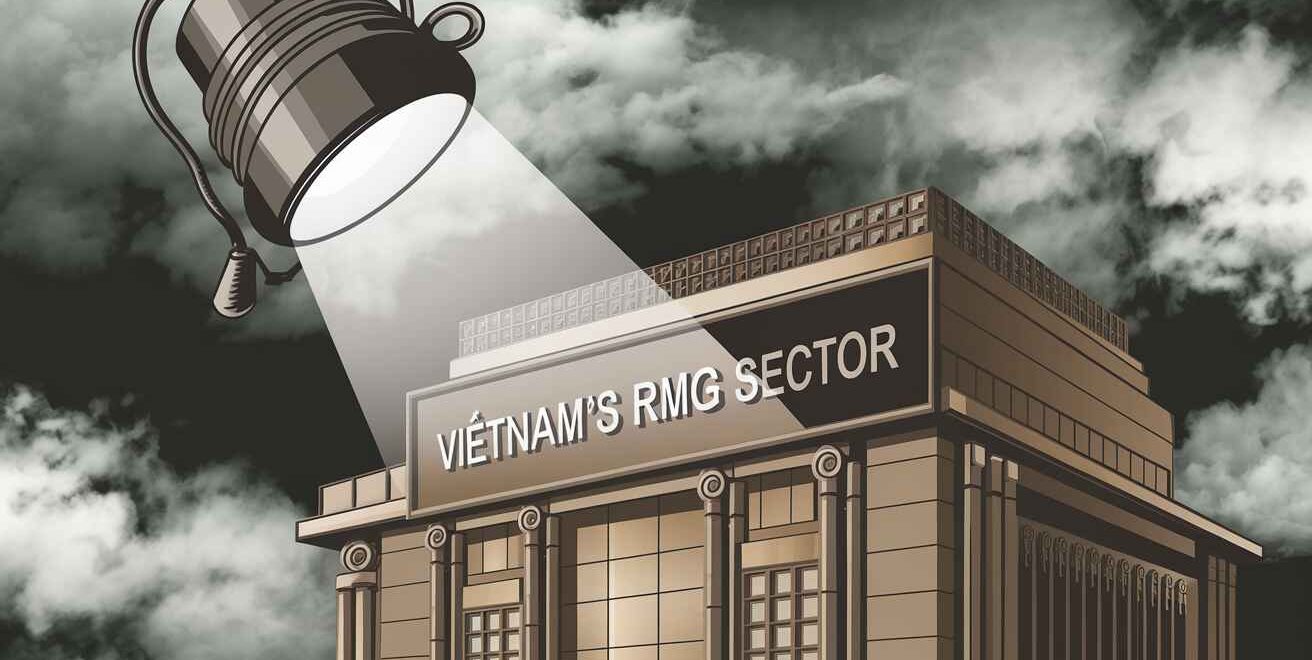Vietnam’s Garment Industry: A Rising Star in the Global Apparel Market
Vietnam’s garment industry has emerged as a major global player, now the world’s third-largest textile and garment exporter with revenue projected to hit USD 3.56 billion by 2024. This success stems from a skilled workforce, supportive government policies, and key trade agreements like CPTPP and EVFTA, which broaden its global market access. Despite challenges such as reliance on imported raw materials and strict environmental standards, Vietnam is investing heavily in sustainable practices, enhancing its reputation as a leader in eco-friendly production. This blend of innovation, strategic positioning, and sustainability drives Vietnam’s continued prominence in the global apparel market.
Shifting Gears: From Production Powerhouse to Brand Recognition
Vietnam’s garment industry, previously known for low-cost manufacturing, is now shifting toward building strong international brands. With over 6% of global textile and garment exports, the industry is moving from basic production to high productivity and brand development (Vietnam Credit, 2024; McKinsey & Company, 2024). Companies like Viettien and May 10 Corporation are launching their own brands to capture global market share (Vietnam Sourcing Hub, 2023). Supported by a 5.8% annual productivity growth and favourable trade agreements such as CPTPP and EVFTA (InFlow, 2024; Global Sources, 2024), the industry is also benefiting from a 24.7% growth in e-commerce, enabling brands like Blue Exchange and Canifa to enhance their international presence (Vietnam Sourcing Hub, 2023; Savills, 2023).
The Need for Proactive Global Marketing Strategies
In Vietnam’s competitive RMG sector, proactive global marketing is crucial for success. To stand out and capture international market share, companies must adopt innovative strategies, including tailored regional campaigns, digital platform utilisation, and strategic partnerships (Vietnam Insider, 2024; 6Wresearch, 2024; Digital Launch, 2024). Embracing advanced technologies and sustainability trends is essential to stay ahead in the evolving global market (Hyphenated Magazine, 2024). By investing in these strategies, Vietnamese firms can enhance their market position and achieve sustained growth.
Challenges Faced by Vietnam in Global Marketing
Vietnam’s ready-made garment (RMG) sector has made significant strides in global markets, but it faces several challenges in establishing a strong global presence. These challenges include limited brand identity, the perception of “low-cost,” a marketing expertise gap, and issues related to building consumer trust.
Limited Brand Identity: Dominance of OEM Model
A major challenge for Vietnam’s garment industry is its reliance on the Original Equipment Manufacturing (OEM) model, where manufacturers often work behind the scenes for global brands. This has hindered the development of strong, independent Vietnamese brands, making it difficult for them to stand out and gain visibility in the global market.
Perception of “Low-Cost”: Competition and Value Differentiation
Vietnam’s garment sector is seen as a “low-cost” producer, facing stiff competition from similar markets like Bangladesh and Cambodia. This perception also makes it hard for Vietnamese companies to highlight value beyond price. To address this, they need a marketing approach that focuses on quality, innovation, and sustainability.
Marketing Expertise Gap: Investment and Talent Deficiency
A significant hurdle is the lack of marketing expertise in Vietnamese garment firms, which have traditionally underinvested in branding and promotion. This gap, compounded by a shortage of skilled marketers, hinders effective global strategies. To compete internationally, companies need to invest in building their marketing capabilities and comprehensive branding initiatives.
Building Consumer Trust: Intellectual Property and Transparency
Building consumer trust is a major challenge for Vietnamese companies due to concerns about intellectual property and transparency. Issues like counterfeiting can undermine confidence. To address this, companies need to strengthen IP protections and enhance supply chain transparency, which will build trust and improve their market reputation.
Suggestions to Overcome the Challenges Faced by Vietnam in Global Marketing
Building a Strong Brand Narrative
A strong brand narrative can enhance Vietnam’s global presence by showcasing its craftsmanship and sustainability. Brands like Viettien are integrating traditional techniques and eco-friendly practices into their stories. Investing in unique designs and high-quality materials will help Vietnamese companies stand out and attract international consumers.
Value-Added Marketing
To shift the perception of Vietnamese garments from merely low-cost products to high-value offerings, companies should focus on value-added marketing. Emphasising quality, ethical production practices, and social responsibility can help build a positive reputation. Highlighting certifications such as Fair Trade and GOTS (Global Organic Textile Standard) and promoting ethical sourcing initiatives can further bolster this image (Business Inspection, 2024). By demonstrating a commitment to ethical practices and quality, Vietnamese brands can attract consumers who prioritise these values and are willing to pay a premium for them.
Leveraging Digital Marketing
Digital marketing offers Vietnamese garment companies a key opportunity to reach a global audience. By leveraging social media and e-commerce platforms, brands can enhance visibility and engage with consumers worldwide. Targeted campaigns on Instagram and Facebook, along with a strong e-commerce strategy featuring a user-friendly website and effective SEO, can boost brand awareness and drive international sales.
Building Strategic Partnerships
Strategic partnerships are vital for expanding Vietnam’s global market reach. Collaborating with international designers and marketing agencies helps Vietnamese brands align with global trends, while partnerships with established retailers provide access to broader markets and retail networks.
Building a Sustainable Marketing Strategy
In the competitive global apparel market, building a sustainable marketing strategy is crucial for Vietnamese ready-made garment (RMG) companies aiming to strengthen their international presence. A successful strategy hinges on two key components: leveraging data-driven marketing and adapting to evolving consumer preferences and sustainability trends.
Importance of Data-Driven Marketing
Data-driven marketing is crucial for developing effective and sustainable strategies. By leveraging data analytics, Vietnamese garment companies can gain insights into consumer behaviour and market trends, allowing for personalised and efficient marketing campaigns (Business Inspection, 2024). This approach enhances ROI by targeting specific audiences with tailored messages. Additionally, real-time performance metrics enable informed decision-making and agile adjustments, such as using predictive analytics to optimise inventory and marketing strategies based on demand trends (McKinsey & Company, 2024).
Adapting to Evolving Consumer Preferences
Consumer preferences are rapidly evolving due to fashion, technology, and lifestyle trends. Vietnamese garment companies need to adapt to these changes to stay competitive globally. For example, the growing demand for personalized fashion experiences highlights the need for customization and interactive online shopping (The Vietnamese, 2021). Additionally, understanding regional and cultural differences is crucial for tailoring marketing strategies to local tastes, enhancing brand appeal across various markets (Business Inspection, 2024).
Embracing Sustainability Trends
Sustainability is increasingly influencing consumer choices, with a rising demand for transparency and eco-friendly practices (McKinsey & Company, 2024). For Vietnamese garment companies, incorporating sustainability into their marketing strategies is both a response to this trend and a chance to enhance their brand image. Highlighting practices like ethical sourcing, eco-friendly materials, and certifications can build credibility and appeal to environmentally conscious consumers (The Vietnamese, 2021).
Integrating sustainability into product design and production is essential for differentiation in the global market. Effective communication of these efforts aligns with consumer values and supports long-term business success. For Vietnam’s RMG sector, a sustainable marketing strategy should combine data-driven insights with responsiveness to consumer trends and sustainability demands. This approach enhances global presence and drives growth, ensuring marketing efforts resonate with today’s eco-conscious consumers.
How Groyyo can be the key contributor to overcome these challenges
Vietnam’s ready-made garment (RMG) sector faces significant challenges in strengthening its global market presence, including establishing a distinct brand identity, countering perceptions of being a low-cost producer, addressing marketing expertise gaps, and building consumer trust. Groyyo Consulting is uniquely positioned to help overcome these obstacles through its specialised services. For instance, Groyyo can assist Vietnamese brands like Viettien in crafting compelling narratives that emphasise their craftsmanship and sustainability efforts, thus creating a strong brand identity (Groyyo Consulting, 2024). Additionally, Groyyo can guide companies such as May 10 in shifting the perception of Vietnamese garments from merely low-cost to high-value by highlighting quality, ethical practices, and certifications.
Furthermore, Groyyo Consulting addresses the marketing expertise gap by providing tailored strategies and training. By collaborating with firms like Thong Nhat, Groyyo can implement effective digital marketing campaigns and optimise investments to enhance global reach (Groyyo Consulting, 2024). To build consumer trust, Groyyo’s risk management and compliance services help companies like Garco 10 strengthen intellectual property protections and ensure transparency in their supply chains. These comprehensive solutions enable Vietnamese RMG firms to establish a robust market presence, improve brand positioning, and foster trust with global consumers, driving sustained growth and success in the international apparel market.
Conclusion
Vietnam’s ready-made garment (RMG) sector has demonstrated impressive growth and resilience, establishing itself as a formidable player in the global apparel market. Its rise is driven by strategic advantages such as a skilled workforce, supportive trade agreements, and a burgeoning focus on sustainability. However, to solidify and expand its global presence, Vietnam must navigate significant challenges, including limited brand identity, perceptions of low-cost production, marketing expertise gaps, and issues with consumer trust.
To overcome these hurdles, Vietnam’s garment industry must adopt proactive strategies. Building a strong brand narrative, emphasising value-added marketing, leveraging digital platforms, and forging strategic partnerships are essential steps. Groyyo Consulting can play a pivotal role in this transformation by helping Vietnamese brands develop compelling brand stories, enhance their marketing strategies, and build consumer trust. With Groyyo’s expertise in crafting data-driven, sustainable marketing strategies and its focus on strategic collaborations, Vietnamese garment companies are well-positioned to address current challenges and drive long-term success in the global apparel market. As Vietnam continues to evolve from a production powerhouse to a recognized global brand, these strategic initiatives will be crucial in achieving sustained growth and global competitiveness.

divyamohan@groyyo.com


Leave a Comment